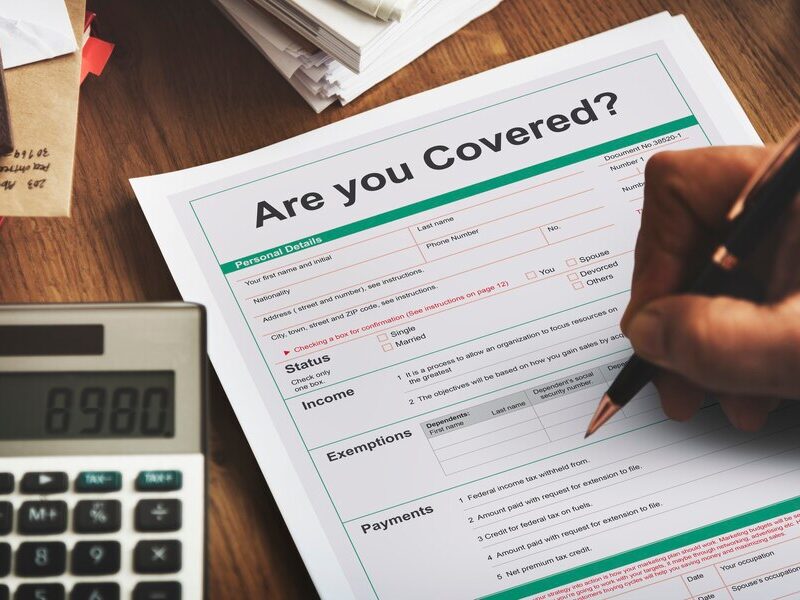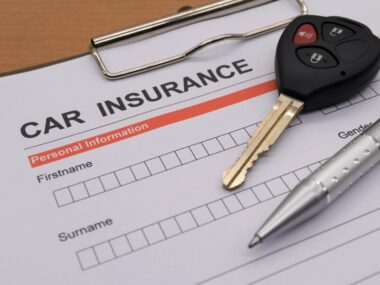In today’s digitally connected world, many people are familiar with the term “dial direct insurance.” However, for those who are new to the insurance industry or looking for their first auto or home policy, the meaning and implications of dial direct insurance can be somewhat unclear.
What is Dial Direct Insurance?
At its core, dial direct insurance simply refers to obtaining an insurance quote or policy directly from an insurance carrier or provider, without going through an insurance agent or broker. With dial direct models, consumers can call an insurance company directly on the phone or visit their website to get personalized quotes, ask questions, and purchase policies for auto, home, renters, and other types of coverage.
Rather than meeting with a local agent, the consumer interacts directly with the insurance company over the phone or online. This direct-to-consumer approach allows insurance carriers to potentially offer lower rates by reducing overhead costs associated with agent commissions and physical office spaces. It also gives consumers more autonomy and control over the quote and purchase process.
Some key characteristics that define dial direct insurance include:
- Obtaining quotes and purchasing policies directly from the insurance company without an agent.
- Interacting with customer service representatives by phone, online chat, or website rather than in-person meetings.
- Potential for lower premiums since the insurance company does not have to pay agent commissions on each policy.
- Less hand-holding throughout the process as there is no local agent to guide the consumer.
- Reliance on the consumer to gather all necessary information to get an accurate quote.
So in summary, dial direct insurance streamlines the quoting and purchasing process by removing insurance agents from the equation and having consumers interact directly with insurance carriers. This helps keep overhead costs low and potentially leads to lower premium prices.
Pros and Cons of Dial Direct Insurance
As with any financial product or service, dial direct insurance comes with advantages and drawbacks to consider. Weighing the pros and cons can help determine if this model makes sense for an individual’s needs and preferences.
Pros
- Potentially lower rates: With no agent commissions to pay, insurance companies operating on a dial direct model can potentially offer significantly lower premium prices to attract customers directly. Savings of 15-25% compared to agent quotes are commonly reported.
- Convenience: Being able to get quotes and purchase policies entirely from one’s own home or on the go via phone or online is extremely convenient compared to setting up in-person meetings. This is especially appealing for busy individuals.
- Control and autonomy: Dial direct models give consumers full control over the quoting and purchasing process. They are not obligated to work with any specific agent and can shop rates from multiple carriers independently.
- Simple, streamlined process: Interacting directly with insurance companies often means a more straightforward process without going through an intermediary. Less hand-holding is required from the consumer.
Cons
- Lack of expertise: Working directly with insurance carriers means forfeiting the expertise and guidance of a local agent who can advise on important policy details, claims processes, and potential policy gaps. DIY consumers have to shoulder this advisory role themselves.
- Difficulty comparing: It can be challenging for non-experts to holistically compare insurance policies, coverage details, carrier quality, and value between multiple dial direct options on their own. Agents simplify this comparison process.
- Less hand-holding: Issues that arise, from questions to claims, require the consumer to interact directly with the insurance company. There is no local agent available for face-to-face support.
- Information gaps: Without an advisor, DIY consumers run the risk of failing to disclose important details that could undermine the accuracy of a quote, or leaving gaps in their understanding of coverage nuances.
- Rate increases: Dial direct insurance carriers are less prone to work with customers on rate increases over time compared to agent-assisted clients who have formed a long-term relationship.
So while dial direct models provide budget-friendly rates and convenience, the lack of expert guidance does shift more responsibility onto the consumer to properly understand their policies and needs.
4 Tips for Finding the Best Dial Direct Insurance Rate
To maximize the potential cost savings from dial direct insurance while avoiding pitfalls, it’s important to be a savvy shopping around. Here are some key tips:
1. Do Your Research Thoroughly
Spend time learning about different policy types, levels of coverage, industry rating factors that influence quotes, and carrier reputations in your state. Having this foundational knowledge will help ensure you disclose all details accurately and get true “apples-to-apples” rate estimates.
2. Seek Multiple Quotes
Shop rates from at least 3-5 highly-rated carriers that specialize in dial direct models. Rates can vary significantly between insurers, so compare thoroughly. Don’t just stick with the first quote.
3. Ask Specific Questions
When speaking to customer service reps, be prepared with questions about policy inclusions, exclusions, deductibles, discounts, claims processes, etc. Know what you need to feel secure before binding coverage.
4. Consider Bundling Options
Insurers usually provide multi-policy discounts when insuring both your auto and home with them. Make sure to inquire if bundling can deliver an even lower combined rate versus separate policies.
Being an informed, proactive shopper is key to tapping into real cost savings opportunities from dial direct models. With diligent research and comparison, savvy consumers can often do even better than what local agents could achieve.
Key Details to Disclose for Accurate Quotes
Now that you understand how dial direct insurance works, it’s important to discuss some of the finer details consumers need to disclose to carriers in order to receive accurate rate estimates. Failing to provide complete information could result in an inaccurate low-ball quote or denial of a future claim.
The most critical pieces of information insurance companies will need include:
- Driver information – names, dates of birth, driver’s license numbers of all household drivers
- Vehicle details – year, make, model, VIN for all vehicles
- Location specifics – address, garage location, etc.
- Insurance history – prior coverage details, claims, lapses in coverage
- Accidents/violations – records of any accidents or driving citations in the past 5-7 years
- Customizations – aftermarket parts, financed amount for vehicles
- Discounts – multi-policy, security systems, good student status
- Additional exposures – swimming pools, trampolines, dangerous breeds
Taking the time to compile all necessary information upfront will result in faster, more precise quotes so you’re only comparing accurate rates tailored to your specific needs. Omitting or falsifying details could invalidate coverage later on.
Frequently Asked Questions About Dial Direct Insurance
With everything explained so far, hopefully you now have a strong understanding of dial direct insurance models and what it takes to utilize them properly. However, questions still remain. Here are answers to some frequently asked queries:
1. Can I work with an agent after I’ve purchased a dial direct policy?
In most cases, no – policies purchased directly through a carrier are not transferable to work with an agent. You would need to cancel your existing coverage and purchase a new policy through an agent if interested in their services later on.
2. How do I file a claim with a dial direct insurance company?
Contact your insurance carrier’s claims department immediately following an incident. Have your policy number ready and be prepared to provide complete details about what occurred, your role, damages/injuries, other involved parties, etc. The claims representative will guide you through next steps.
3. What if I have additional questions after purchasing coverage?
Dial direct insurers provide customer service phone numbers to contact them with policy inquiries, billing questions, requests for documentation/proof of insurance, and more. Always call your insurance carrier directly with questions rather than relying on outside sources for advice.
4. Will my rates go up significantly each renewal?
Dial direct insurance companies may increase your rates more aggressively over time compared to working with an agent. However, maintaining a clean driving/claims record, maximizing discounts, and shopping rates with other carriers during renewals can help avoid premium hikes to a certain extent if savings disappear.
5. Do dial direct insurers charge monthly or provide pay plans?
Most carriers offer the choice to pay monthly for added convenience, but there is usually a small fee associated. Be sure to clarify payment plans and any associated costs upfront so you’re aware of all options. Yearly payment in full may result in a slight discount.




